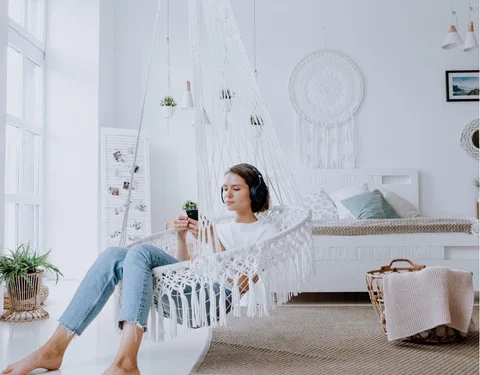In a world that often glorifies excess and consumerism, the concept of minimalism has gained significant traction. Minimalism is more than just a design aesthetic; it’s a lifestyle choice that encourages simplicity and intentionality in all aspects of life. By decluttering both your physical and mental spaces, you can create a more meaningful and fulfilling existence. In this guide, we will delve into the principles of minimalism and provide practical tips to help you simplify your life.
Understanding Minimalism
Minimalism is not about deprivation or austerity; it’s about finding value and meaning in what truly matters. At its core, minimalism encourages individuals to:
- Declutter: Start by decluttering your physical space. Identify items that no longer serve a purpose or bring you joy, and consider donating or selling them. A minimalist living space is clean, organized, and free from unnecessary belongings.
- Prioritize Quality Over Quantity: Instead of owning numerous possessions, celebagenow.com focus on acquiring high-quality items that serve multiple functions. Quality often outlasts quantity.
- Mindful Consumption: Be mindful of what you buy. Ask yourself if an item adds value to your life before making a purchase. This practice reduces impulse buying and prevents unnecessary accumulation.
- Digital Minimalism: Extend the principles of minimalism to your digital life. Cleanse your social media feeds, unsubscribe from irrelevant newsletters, and reduce screen time. This can help you reclaim precious time and mental clarity.
Benefits of Minimalism
Embracing minimalism can lead to a variety of positive outcomes, including:
- Reduced Stress: Clutter and excess can contribute to feelings of overwhelm and anxiety. By simplifying your surroundings, you can create a more peaceful and calming environment.
- Increased Focus: Minimalism encourages you to concentrate on what truly matters, whether it’s your goals, relationships, or personal growth. Eliminating distractions allows for better focus and productivity.
- Financial Freedom: Minimalism can help you save money by curbing impulsive spending and prioritizing investments that align with your values.
- Improved Well-being: A clutter-free and intentional life can lead to increased happiness and a stronger sense of purpose.
Practical Steps to Embrace Minimalism
- Start Small: Begin your minimalist journey with one area of your life, such as your wardrobe or kitchen. Once you experience the benefits, you can expand your efforts.
- The KonMari Method: Consider using Marie Kondo’s approach, which involves assessing each item in your home and keeping only those that “spark joy.”
- Digital Detox: Regularly evaluate your digital life. Delete unused apps, unsubscribe from newsletters, and set limits on screen time.
- Quality Over Quantity: When making purchases, invest in durable, high-quality items that align with your values and needs.
- Declutter Regularly: Minimalism is an ongoing process. Set aside time periodically to declutter and reevaluate your possessions.
- Mindful Consumption: Before making a purchase, ask yourself if it aligns with your values and if it truly adds value to your life.
Conclusion
Minimalism is a powerful tool for simplifying your life and finding greater meaning and satisfaction. By decluttering your physical and mental spaces, prioritizing quality over quantity, and practicing mindful consumption, you can embark on a journey towards a more intentional and fulfilling life. Remember that minimalism is a personal journey, and there’s no one-size-fits-all approach. Find what works best for you and enjoy the benefits of a simpler, more purposeful existence.








